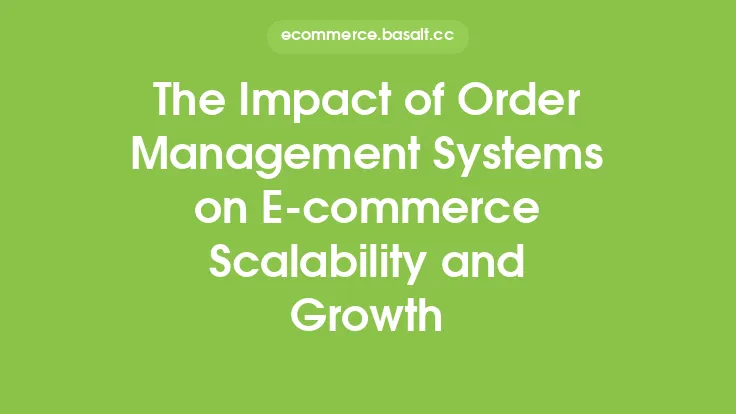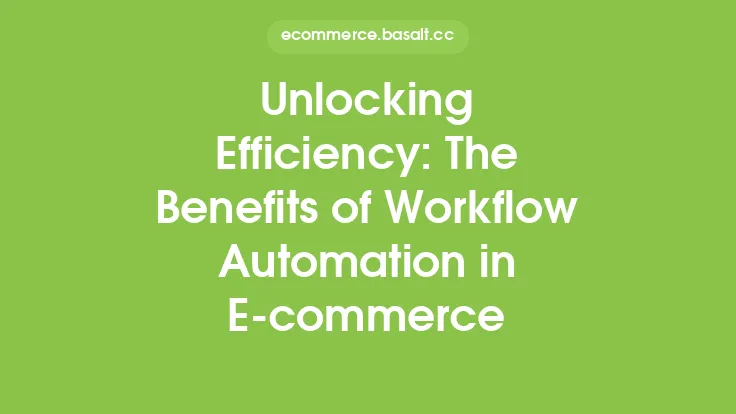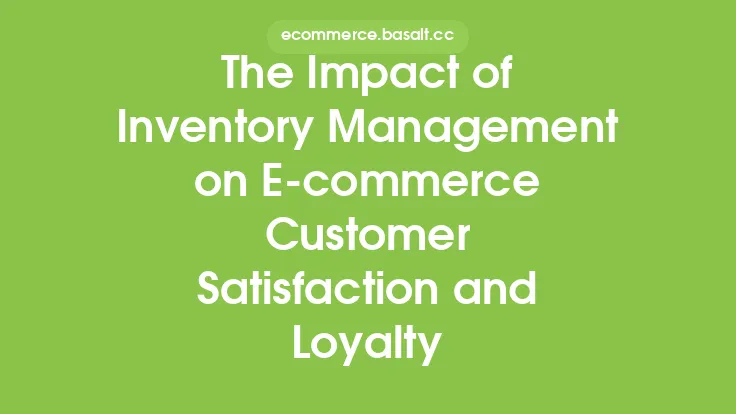In today's fast-paced e-commerce landscape, businesses are constantly seeking ways to stay ahead of the competition and maximize their productivity. One key strategy that has gained significant attention in recent years is e-commerce automation. By automating various aspects of their operations, online retailers can streamline their workflows, reduce manual errors, and increase efficiency. In this article, we will delve into the impact of e-commerce automation on business growth and explore the various ways in which it can benefit online retailers.
Understanding E-commerce Automation
E-commerce automation refers to the use of technology to automate repetitive and time-consuming tasks, such as order processing, inventory management, and customer service. By leveraging automation tools and software, online retailers can free up valuable time and resources, which can then be allocated to more strategic and creative endeavors. E-commerce automation can be applied to various aspects of an online business, including marketing, sales, and fulfillment. For instance, automated email marketing campaigns can help retailers nurture leads and encourage conversions, while automated inventory management systems can help prevent stockouts and overstocking.
Benefits of E-commerce Automation
The benefits of e-commerce automation are numerous and well-documented. Some of the most significant advantages include increased efficiency, reduced errors, and enhanced customer experience. By automating routine tasks, online retailers can process orders faster and more accurately, which can lead to increased customer satisfaction and loyalty. Additionally, automation can help retailers scale their businesses more efficiently, as they can handle increased volumes of traffic and sales without having to hire additional staff. Other benefits of e-commerce automation include improved data analysis and insights, which can help retailers make more informed decisions about their businesses.
Key Areas of E-commerce Automation
There are several key areas where e-commerce automation can have a significant impact on business growth. These include order management, inventory management, shipping and fulfillment, and customer service. Automated order management systems can help retailers process orders faster and more accurately, while automated inventory management systems can help prevent stockouts and overstocking. Automated shipping and fulfillment systems can help retailers get products to customers faster and more efficiently, while automated customer service systems can help retailers provide 24/7 support to their customers.
Implementing E-commerce Automation
Implementing e-commerce automation can be a complex and challenging process, especially for small and medium-sized businesses. However, with the right tools and strategies, online retailers can overcome these challenges and achieve significant benefits from automation. Some of the key steps involved in implementing e-commerce automation include identifying areas for automation, selecting the right automation tools and software, and integrating these tools with existing systems and workflows. Additionally, online retailers need to ensure that their automation systems are scalable and flexible, so that they can adapt to changing business needs and requirements.
Best Practices for E-commerce Automation
To get the most out of e-commerce automation, online retailers need to follow best practices and guidelines. These include starting small and scaling up gradually, monitoring and evaluating automation systems regularly, and ensuring that automation systems are integrated with existing workflows and systems. Additionally, online retailers need to ensure that their automation systems are secure and compliant with relevant laws and regulations, such as data protection and privacy laws. By following these best practices, online retailers can minimize the risks associated with automation and maximize its benefits.
Future of E-commerce Automation
The future of e-commerce automation looks bright, with new technologies and innovations emerging all the time. Some of the key trends and developments that are expected to shape the future of e-commerce automation include artificial intelligence and machine learning, the Internet of Things (IoT), and blockchain technology. These technologies have the potential to revolutionize e-commerce automation, enabling online retailers to automate even more complex and sophisticated tasks, such as personalized marketing and customer service. As e-commerce automation continues to evolve and improve, online retailers can expect to see even more significant benefits and advantages, including increased efficiency, reduced costs, and enhanced customer experience.
Conclusion
In conclusion, e-commerce automation is a powerful strategy that can help online retailers maximize their productivity and drive business growth. By automating routine tasks and leveraging technology, online retailers can streamline their workflows, reduce manual errors, and increase efficiency. Whether it's order management, inventory management, shipping and fulfillment, or customer service, e-commerce automation can have a significant impact on various aspects of an online business. As the e-commerce landscape continues to evolve and change, online retailers need to stay ahead of the curve by adopting automation technologies and strategies that can help them compete and succeed in a rapidly changing market. By understanding the benefits and best practices of e-commerce automation, online retailers can unlock new opportunities for growth and success, and achieve their full potential in the competitive world of e-commerce.





